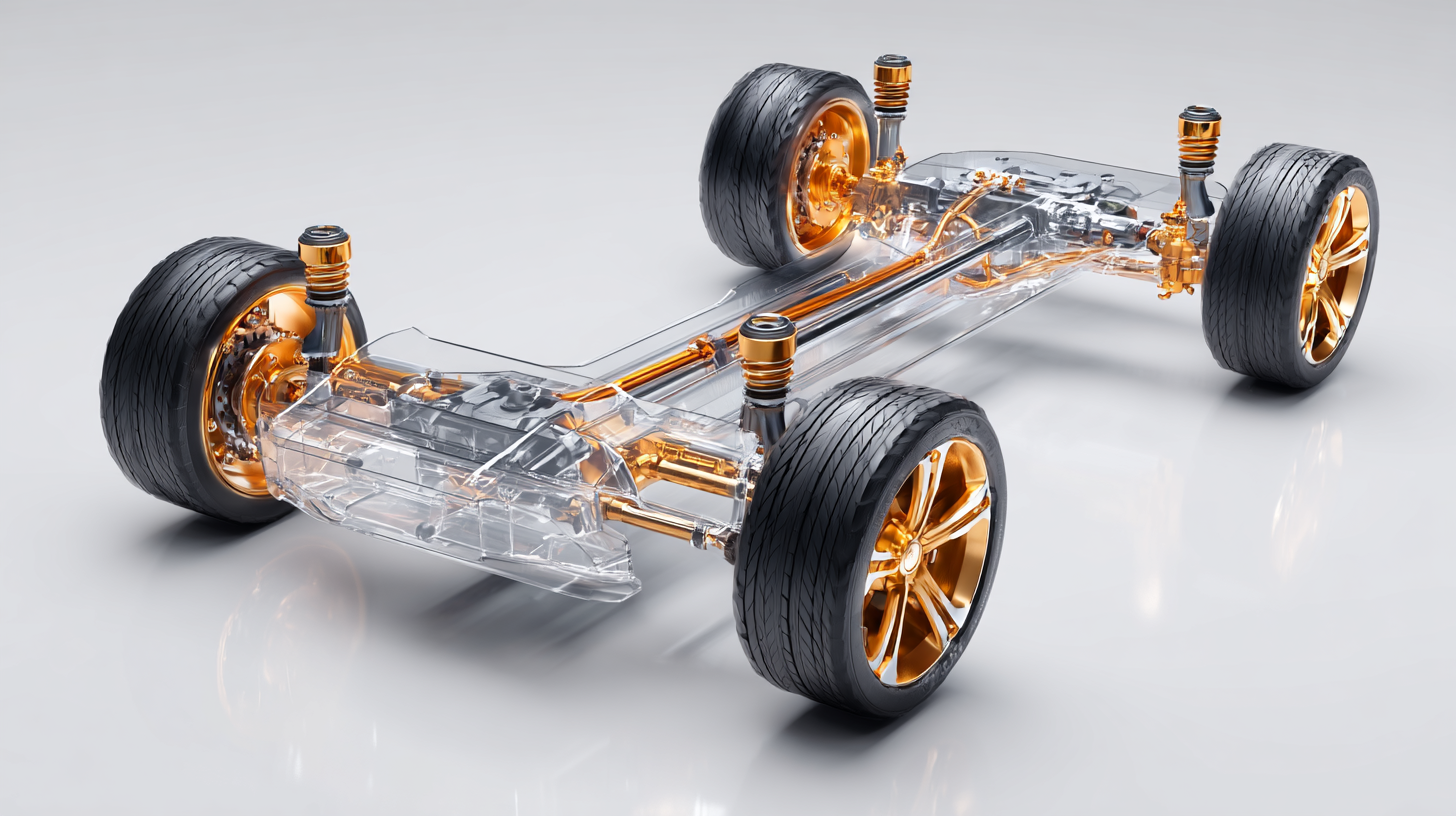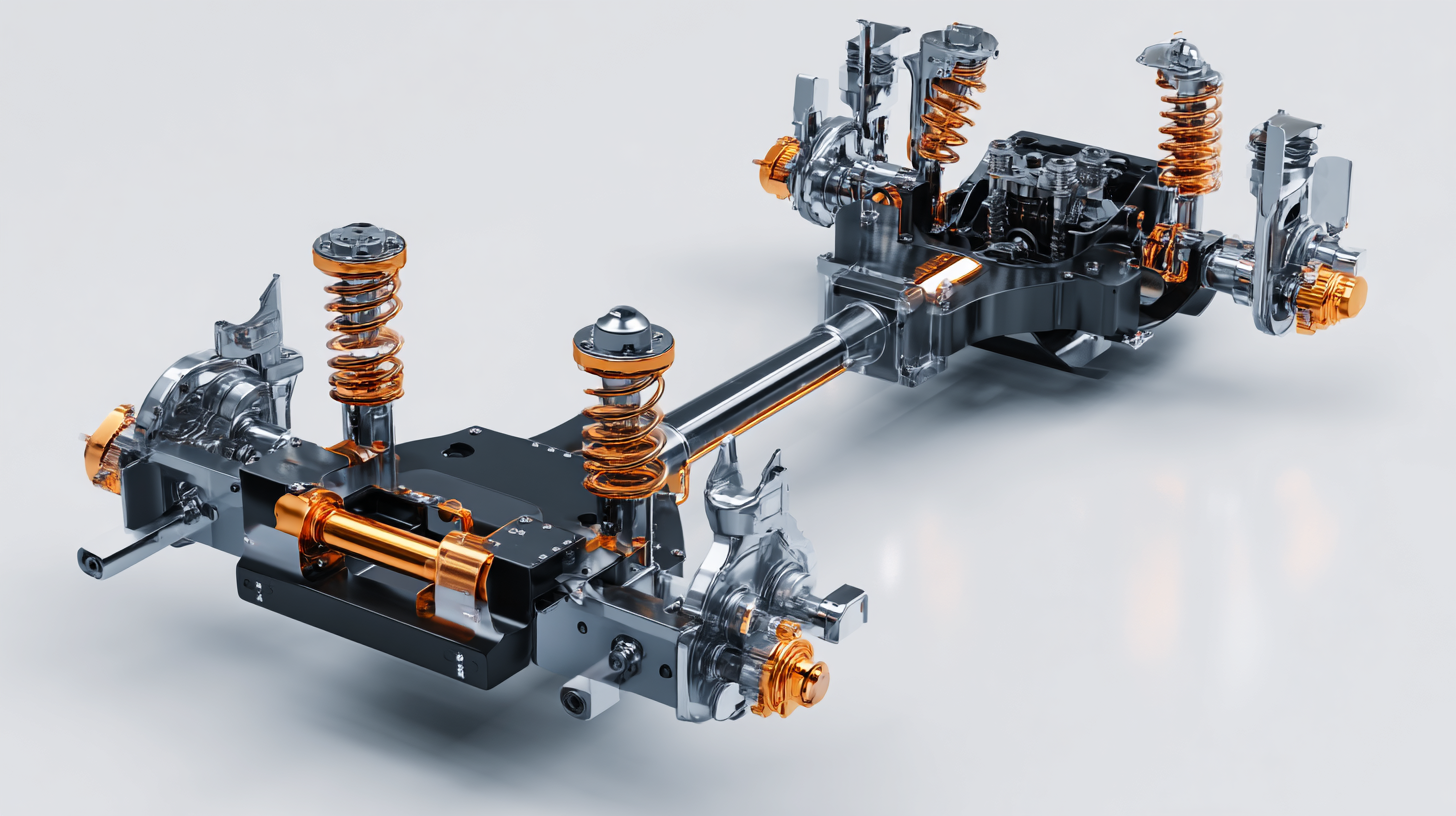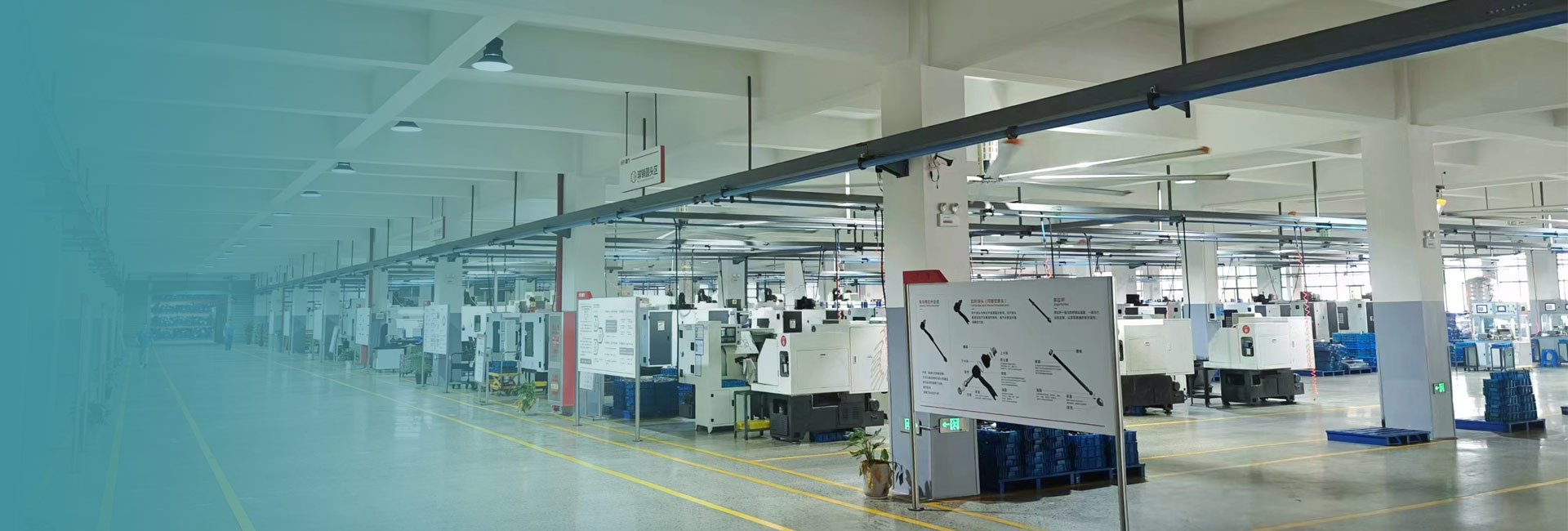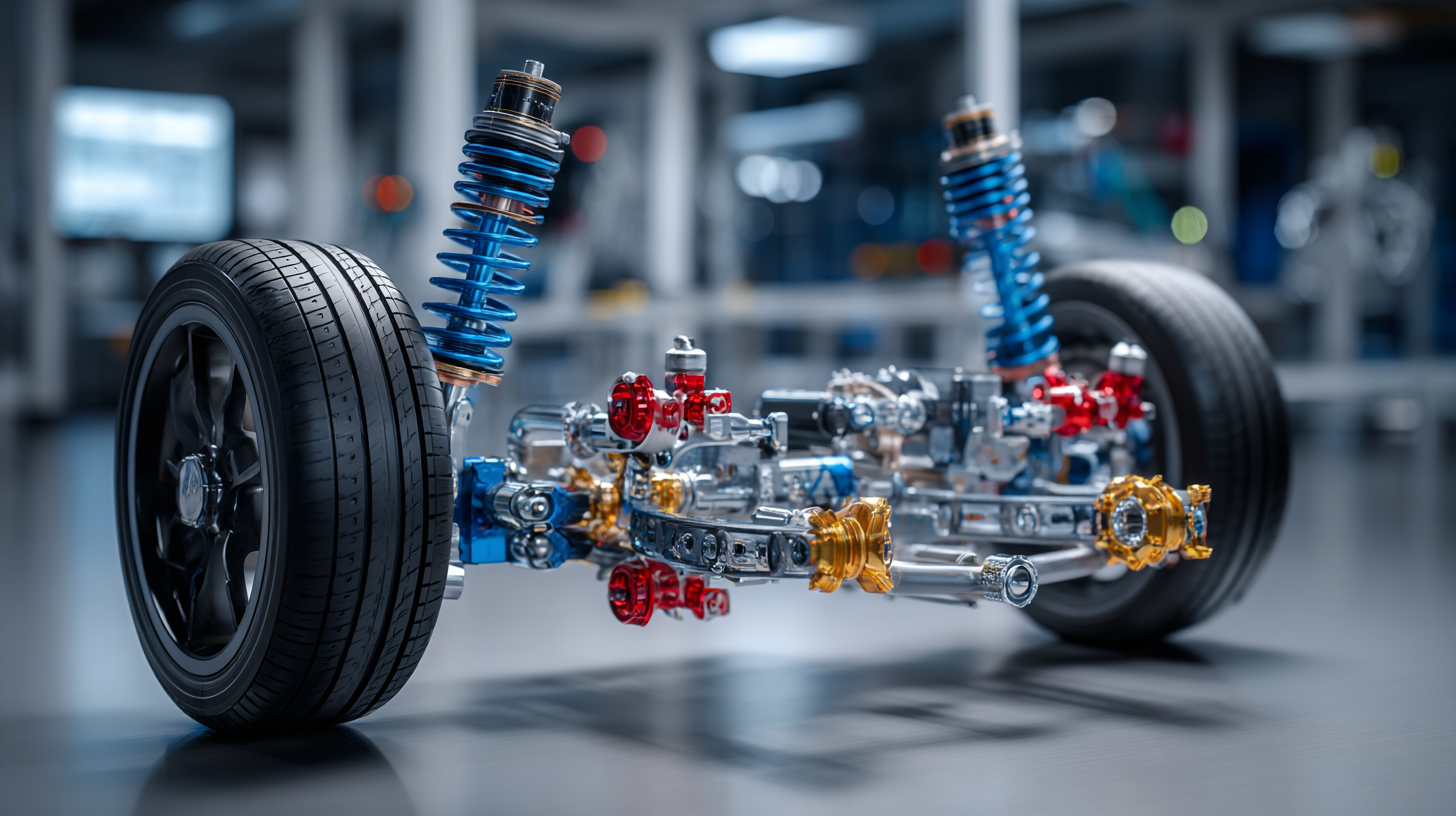Envisioning 2025: The Future of the Best Automobile Suspension Systems in a Tech-Driven World
As we look forward to 2025, the landscape of the automobile industry is rapidly evolving, driven by advancements in technology and changing consumer expectations. One of the most critical components in this transformation is the Automobile Suspension System, which not only plays a vital role in vehicle stability and comfort but also reflects the increasing integration of smart technologies.
In a tech-driven world, manufacturers are focusing on enhancing the performance and efficiency of suspension systems while simultaneously addressing the need for effective after-sales service and manageable repair costs. This blog will delve into the anticipated innovations in automobile suspension systems, emphasizing how improved service advantages and reduced maintenance expenses will influence consumer choices and shape the future of the automobile market.
By examining the potential developments in this field, we can better understand how the automobile suspension system will adapt to meet the demands of a technology-centric society, ensuring both optimal vehicle performance and customer satisfaction.
The Evolution of Suspension Technologies: Past, Present, and Future
The evolution of suspension technologies has been a remarkable journey, reflecting the advancements in engineering and the growing demands of drivers for safety and comfort. Initially, early vehicles relied on simple leaf springs, which provided a basic level of support and shock absorption. As automotive engineering progressed, innovations such as coil springs and hydraulic dampers were introduced, significantly improving vehicle handling and ride comfort. The shift from mechanical to more complex systems like air suspensions marked a pivotal moment, where the focus became not only performance but also the adaptability to various driving conditions.
In today’s tech-driven world, we are witnessing the emergence of advanced suspension systems integrating sophisticated sensors and artificial intelligence. These next-generation systems can analyze road conditions in real-time, adjusting the suspension dynamically to enhance performance and comfort. Electric and hybrid vehicles are further pushing the boundaries, as lightweight materials and smart technologies allow for optimal balance and responsiveness. Looking ahead to 2025, the intersection of automation and suspension technology promises groundbreaking changes that could redefine vehicle dynamics, ensuring that safety and ride quality meet the expectations of the modern driver.
Smart Materials and Their Impact on Suspension Performance
As we look toward 2025, the evolution of automobile suspension systems is poised to be heavily influenced by smart materials. These innovative materials, which can respond dynamically to changing conditions, promise to revolutionize not only the performance of suspension systems but also the overall driving experience. For instance, the incorporation of shape memory alloys allows the suspension to adapt to various terrains and driving styles in real time, enhancing both comfort and safety.

Moreover, advancements in active suspension technologies utilizing magnetorheological fluids enable vehicles to automatically adjust their damping characteristics. This responsiveness leads to improved road handling, reduced body roll, and a smoother ride. As manufacturers increasingly integrate smart materials into their designs, we can expect a significant reduction in maintenance needs and an increase in the longevity of suspension components. The shift towards these advanced materials will not only elevate performance but also align with a growing emphasis on sustainability within the automotive industry, tapping into recyclable and environmentally friendly substances for a greener future.
The Role of AI and Data Analytics in Optimizing Suspension Systems
As we move towards 2025, the integration of AI and data analytics in optimizing automobile suspension systems promises to revolutionize the driving experience.
AI algorithms can analyze vast amounts of data collected from vehicles in real-time, allowing for adaptive suspension systems that respond to road conditions and driver behavior. This not only enhances ride comfort but also improves handling and safety.
With machine learning, these systems can continuously improve their performance, learning from every journey taken.
Tips for manufacturers looking to embrace this technology include investing in robust data collection mechanisms.
Gathering data from various sensors throughout the vehicle can provide insights that are invaluable for refining suspension systems.
Additionally, fostering collaborations with tech companies can accelerate the development of advanced algorithms capable of interpreting this data effectively.
Another critical tip is to prioritize user feedback. By incorporating driver experiences and preferences into the data analytics process, manufacturers can create suspension systems that not only perform well but also cater to individual driving styles.
This personalized approach can significantly enhance customer satisfaction and brand loyalty in an increasingly competitive market.
Sustainability in Automotive Suspension: Innovations for a Greener Future
As the automotive industry strides towards 2025, sustainability is becoming a cornerstone of innovation, particularly in suspension systems. Traditional suspension systems have long relied on materials and designs that prioritized performance over environmental impact. However, a shift is underway towards greener alternatives. Manufacturers are now exploring lightweight composites, recycled materials, and bio-based polymers that not only reduce weight but also lower the carbon footprint of vehicle production.

Innovations in technology are playing a crucial role in this transformation. Smart suspension systems equipped with sensors and adaptive algorithms can optimize vehicle dynamics while consuming less energy. These intelligent systems predict and adjust to road conditions in real-time, increasing efficiency and enhancing ride comfort. Additionally, regenerative suspension technologies harness energy from road imperfections to power electrical components of the vehicle, contributing to a more sustainable ecosystem. As the focus on sustainability intensifies, the future of automotive suspension systems promises to balance performance and environmental responsibility, paving the way for a greener automotive landscape.
Driving Experiences Reimagined: How Suspension Enhances Vehicle Dynamics
As we navigate towards 2025, the integration of advanced suspension systems is set to redefine driving experiences, significantly enhancing vehicle dynamics. Modern suspension technologies, such as adaptive and semi-active systems, are revolutionizing how vehicles respond to road conditions. A recent report from the International Journal of Vehicle Design highlights that adaptive suspension systems can reduce body roll by up to 60%, providing drivers with better control and comfort without compromising safety.
Furthermore, the growing emphasis on electric and autonomous vehicles is driving innovations in suspension design. According to a study by MarketsandMarkets, the global automotive suspension market is projected to reach $55 billion by 2025, spurred largely by the demand for lightweight materials and enhanced performance features. By improving the suspension system, manufacturers can offer superior handling and reduced vibration, thus creating a more enjoyable and safe ride for passengers. As we look ahead, it is clear that the evolution of suspension technology will play a crucial role in shaping the future driving landscape.
Envisioning 2025: The Future of Automobile Suspension Systems







